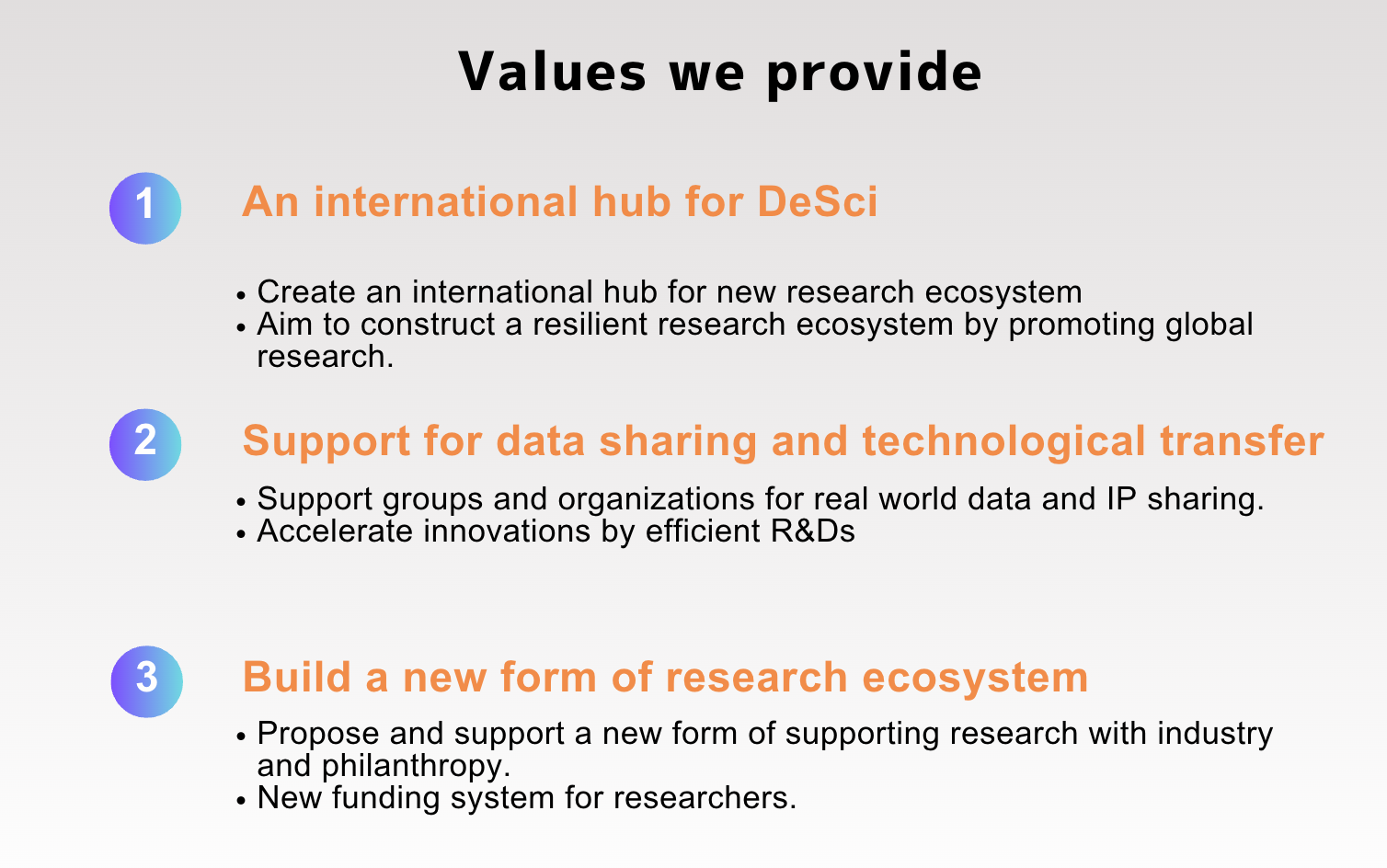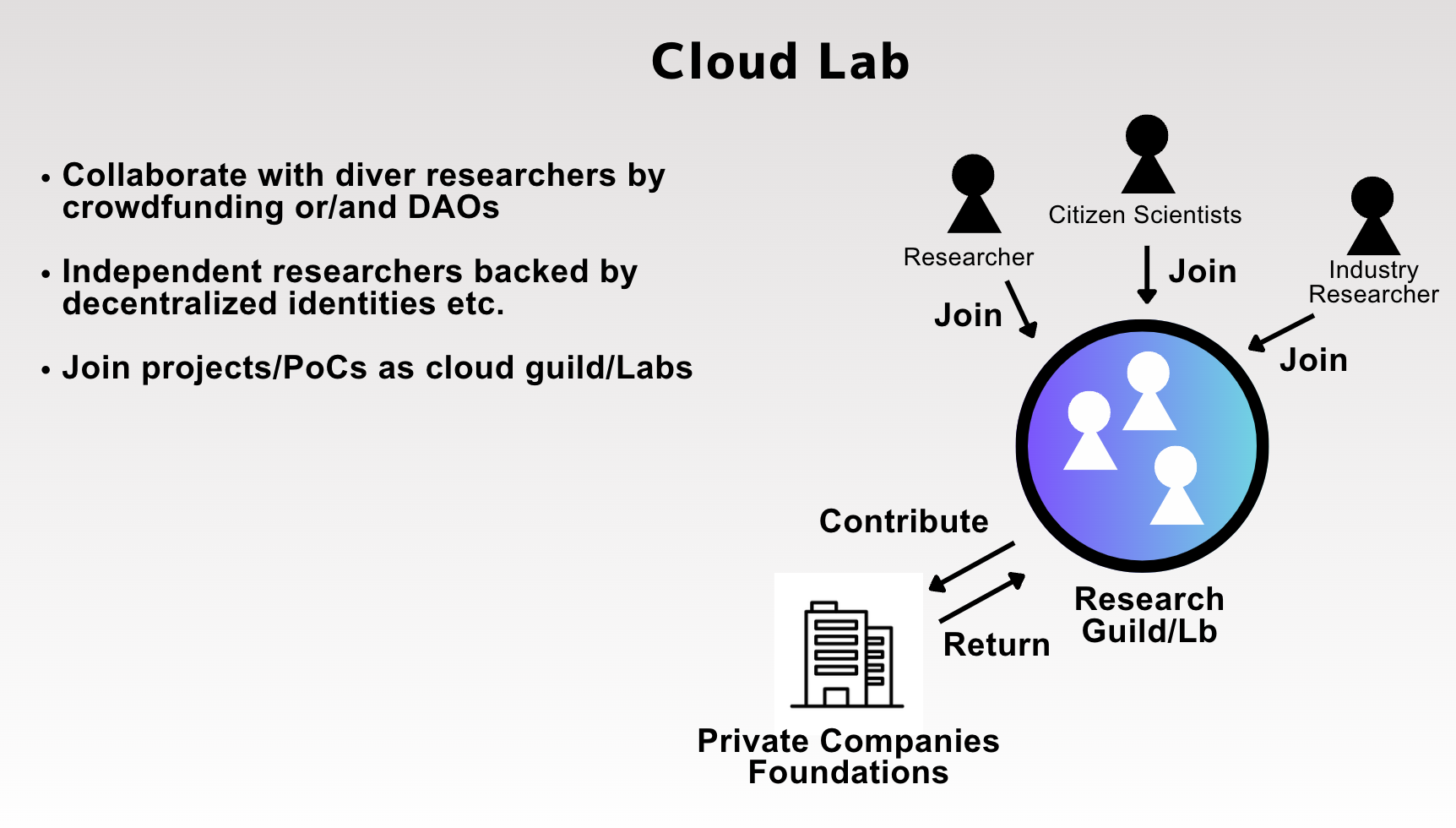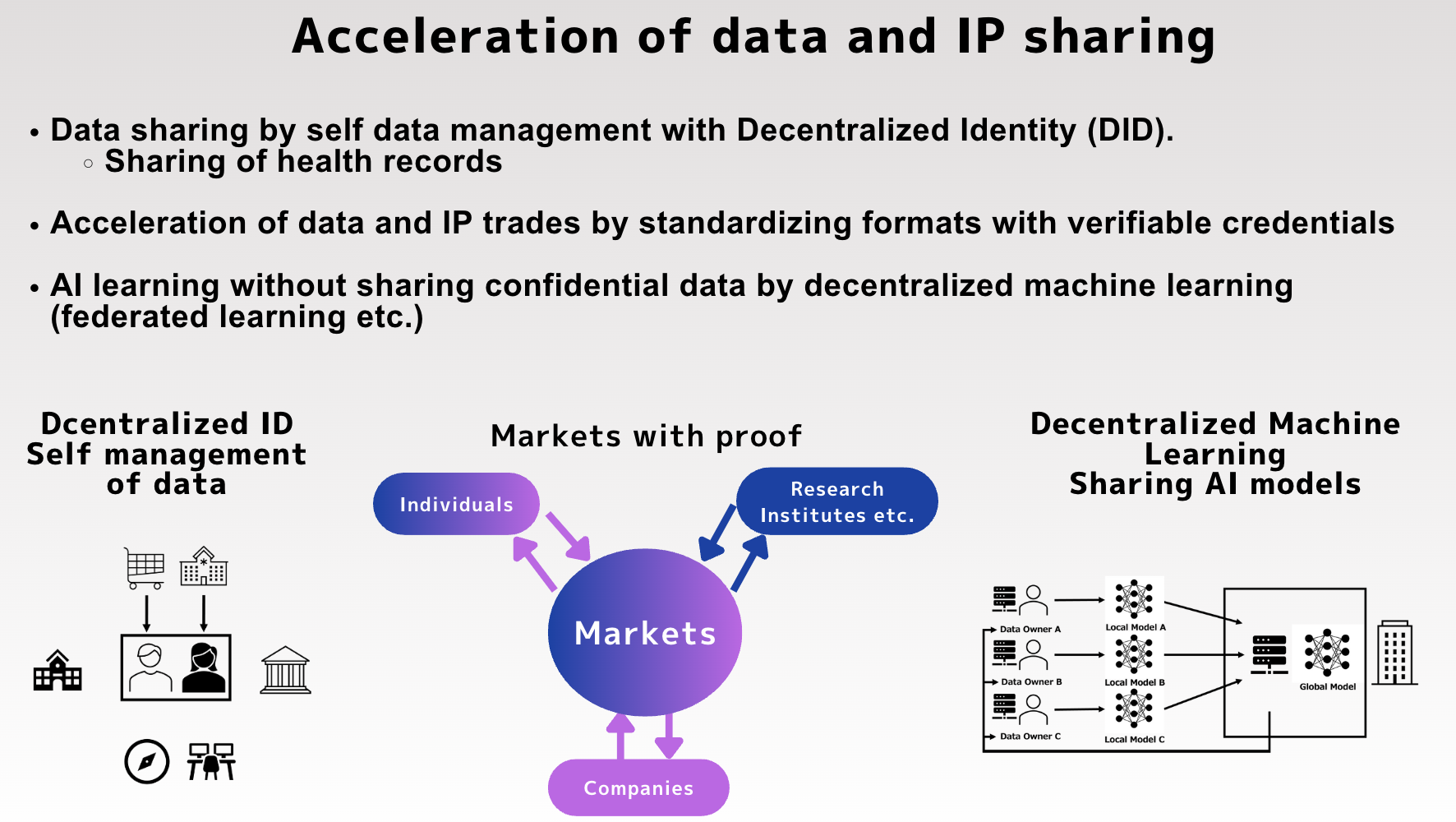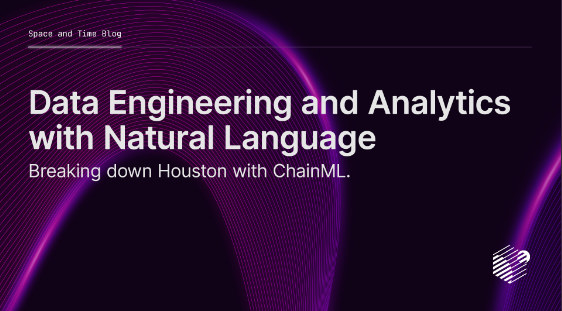Introduction
Science has been a key driver for innovation. However, multiple systemic issues such as lowered impact of research, low reproducibility and increased research & development (R&D) have been discussed. Multiple individuals and organizations emerged to solve systemic problems in science. Such movement becomes global, known as the metascience movement. Japanese science ecosystem also faces multiple challenges such as decreased presence of research quality, decreased number of Ph.D holders, and underdevelopment of technology transfer. Decentralized Science Tokyo (DeSci Tokyo) is an exploratory organization to support solving such issues in Japan. Here, we introduce DeSci Tokyo and our vision for inventing new forms of science. We also describe three pathways to realize it: building a hub for research groups, promoting infrastructure for liquidating decentralized data and intellectual properties (IP), and supporting new forms of science. In doing so, we briefly clarify the future of research which DeSci Tokyo envisions.
Three perspectives of decentralization in science
Multiple organizations such as Molecule and ResearchHub attempt to leverage blockchain tools, such as smart contracts and (fungible and non-fungible) tokens, to improve research funding and knowledge sharing. An early definition of DeSci is about reformation of research systems such as peer review, reputation, identity, and funding with blockchain tools (Hamburg, 2022). This definition capures the current status and the origin of DeSci, which is primarily supported by crypto communities. However, some proposals and concepts, including decentralized identity, federated learning, and decentralized clinical trials, can leverage decentralized systems without blockchain tools. They independently emerged from crypto communities. It may be possible to redefine DeSci from the perspective of decentralized systems.
We propose to redefine DeSci from three perspectives of decentralization in science: governance, infrastructure, and ecosystem. Here, we touch the three perspectives of decentralization in science.
First, the decentralization in governance means the diversity of individuals in decision-making within an organization. It highlights a structure where decision-making power is not concentrated within a majority but is rather fairly distributed. Second, the decentralization in infrastructure is about the dispersion of data, intellectual property, AI models, and other such resources. Instead of centralizing these in specific institutions or servers, they are decentralized and managed across a broader network. Finally, the decentralization in ecosystem is about co-existence of numerous players, with their own unique objectives and methodologies, operating independently to achieve their respective goals. Based on these perspectives of decentralization, DeSci is reformation of research systems based on decentralized governance and infrastructure.
It is worth to discuss relationship between our proposed definition and the previous definition. It is true that blockchain tools can foster these decentralized systems. However, blockchain tools are not the only basis of decentralized systems. For example, InterPlanetary File System (IPFS), developed by Protocol Labs, is a protocol of P2P network, and IPFS does not use blockchain tools. IPFS uses their token, filecoin, as an incentive mechanism. Protocol Labs is also recognized as a famous DeSci organization, but its core technology is not about blockchain tools. Another example of decentralized systems without blockchain tools is quadratic funding (QF). QF is a funding protocol to determine distributions from a funding pool by voting of community members. This system is used as a democratic funding tool in grant DAOs such as Gitcoin and Optimism Collective. For research funding, QF is also expected to be used. Thus, the use of blockchain is not a necessary condition of DeSci (and not a sufficient condition).
These examples support the argument that the use of blockchain is neither a necessary nor a sufficient condition for DeSci. Instead, the proposed definition suggests that the presence of decentralized systems is the essential requirement for an initiative or project to be considered part of the DeSci ecosystem.
The proposed redefinition of DeSci to include decentralized systems without blockchain offers several benefits that should be discussed. By allowing DeSci to encompass decentralized approaches that do not rely on blockchain tools, this broader definition can help navigate the regulatory challenges posed by Japanese laws and similar legal frameworks. By considering alternative decentralized systems without blockchain, researchers and innovators can explore DeSci introductions that are more compatible with existing legal requirements.
Moreover, this expanded definition of DeSci creates opportunities for more diverse researchers and stakeholders to engage in the discussion and development of decentralized science. A wider range of individuals from various backgrounds can contribute their knowledge and perspectives to the DeSci ecosystem.
Thus, redefining DeSci to include decentralized systems beyond blockchain offers several advantages, including navigating legal challenges and fostering inclusive and diverse participation.
DeSci Tokyo refers this new definition of DeSci to build its ecosystem in Japan.
Roles of DeSci Tokyo
The role of DeSci Tokyo is to support researchers and research organizations with decentralized systems. Th mission of DeSci Tokyo is to invent the future of research.
To do so, the vision of research is to provide opportunities to support decentralized systems, groups, and new forms of research. To realize such vision, we set three targets to supports (Fig. 1).

Research groups regardless of academia and industry is our first target to support. Big science projects have been prompted and research collaboration becomes more international. Although big science projects showed its impact to the society, such big science projects may complicate scientific process and overlook contributions from smaller groups. We, rather, support smaller research groups which often do not have enough funding and presence in science ecosystem. A cloud lab, in which members are geographically distributed and belong to different institutes, is our target model of research groups (Fig. 2).

Our second target is to promote decentralized infrastructures for knowledge sharing, data sharing, and IP sharing. A lot of scientific knowledge, data, and IP are still inaccessible due to improper incentive mechanism despite open science movement has encouraged the release of scientific knowledge. We support infrastructure to accelerate knowledge sharing, data sharing, and technological transfer. We may also develop the infrastructure by ourselves (Fig. 3).

Lastly, our target is to activate research communities to explore new forms of research. Private research entities are underexplored in Japan, and conventional social process of existing research entities such as universities and research institutes may hinder fitting to future research environment. DeSci Tokyo will activate the ecosystem by holding events and record activities of new forms of science management models such as Focused Research Organization (FRO) and Private Advanced Research Projects Agency (PARPA).
We will clarify our roadmap in 2025.
Our roadmap
Here is our tentative roadmap of DeSci Tokyo.
-
2024 Q3 DeSci Tokyo Conference 2024
-
2024 Q4 QF experiment and report
-
2025 Q2 Release of whitepaper




评论 (0)